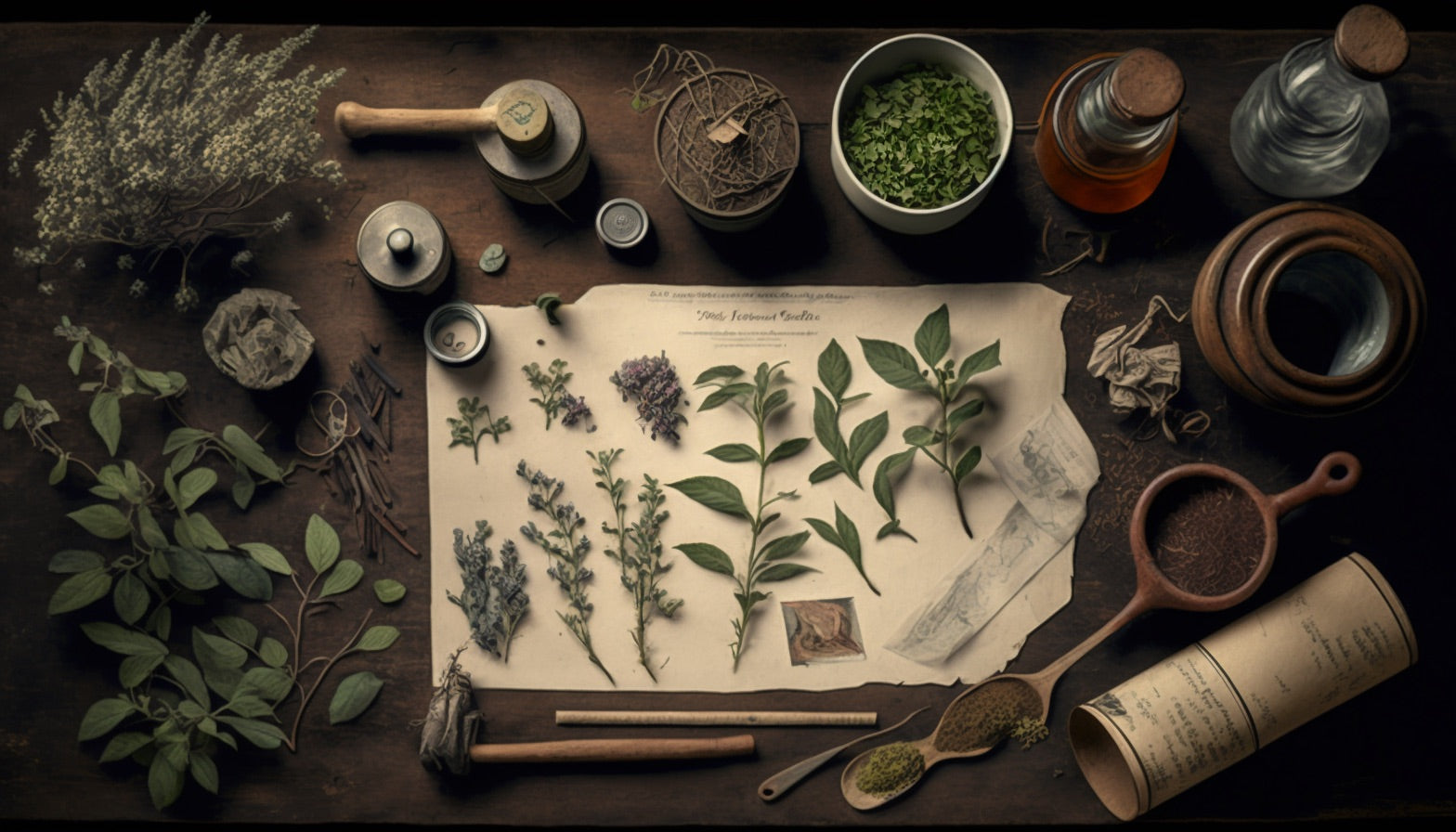From honey and aloe vera for wound care to fenugreek for digestion, these Egyptian natural remedies have stood the test of time.
Ancient Egypt was a civilization that flourished along the banks of the Nile for thousands of years, leaving behind a rich cultural and scientific legacy. One aspect of this legacy is the use of natural remedies for the treatment of various ailments. The ancient Egyptians deeply understood the medicinal properties of plants and used a wide range of natural remedies to treat various diseases. This blog post will look at the ten most commonly used natural remedies in ancient Egypt and how the Egyptians used them to promote health and wellness.

1. Honey
Honey was used as a natural sweetener and a wound dressing in ancient Egypt. It has antibacterial properties, which makes it effective in preventing infection and promoting healing. Honey was also used as a natural cough syrup to soothe sore throats. In addition to these uses, honey was believed to have anti-inflammatory properties, which could help reduce swelling and redness. Honey is still a natural remedy for various ailments, including burns, cuts, and sore throats.

2. Aloe vera
Aloe vera was used to treat burns, cuts, skin diseases, and allergies. It has anti-inflammatory properties and is rich in antioxidants, effectively reducing inflammation and protecting the skin. Aloe vera was also believed to have moisturizing and healing properties, which made it helpful in treating dry, irritated skin. Aloe vera is still widely used as a natural remedy for various skin conditions, including sunburn, eczema, and psoriasis.
3. Fenugreek
Fenugreek, a plant widely utilized in ancient Egypt, was revered for its ability to address various digestive complaints, including indigestion and constipation. Its medicinal properties were believed to extend beyond this, as it was also thought to possess anti-inflammatory and antioxidant properties that could alleviate inflammation and protect the body from harmful free radicals. The seeds of this plant contain high levels of mucilage, a soluble fiber that works to bulk up stools and relieve constipation. Additionally, fenugreek has been traditionally used to treat a wide range of ailments, including diabetes, high cholesterol, and the symptoms associated with menopause.
4. Carob
Carob was used as a natural sweetener and as a treatment for diarrhea. It is high in fiber, which can help to bulk up the stools and alleviate diarrhea. Carob is also rich in antioxidants and has been shown to have anti-inflammatory properties, which may make it helpful in reducing inflammation and protecting the body from free radicals. In addition to its digestive benefits, carob has also been used as a natural remedy for various ailments, including anemia and high blood pressure.
5. Garlic
Garlic was used as a dietary natural antibiotic to treat various ailments, including high blood pressure, high cholesterol, and infections. It has antibacterial and antiviral properties, effectively fighting off infections. Garlic is also rich in antioxidants, which can help to protect the body from free radicals and reduce inflammation. Besides its medicinal uses, garlic was believed to have several other benefits, including improving heart health, boosting the immune system, and even increasing lifespan.

6. Onions
Onions (Allium cepa) were used in ancient Egypt to treat various ailments, including respiratory issues and infections. They are rich in antioxidants, which can help to protect the body from free radicals. Onions are also a good source of vitamin C, which can help to boost the immune system and protect against infections. In addition to their medicinal uses, onions were believed to have other benefits, including improving heart health and reducing the risk of certain types of cancer.
7. Mustard seeds
In ancient Egypt, the humble mustard seed was revered for its powerful healing properties, particularly its ability to alleviate muscle pain and stiffness. These tiny seeds pack a punch, containing potent anti-inflammatory compounds that work wonders in reducing inflammation and relieving muscle pain. But their medicinal benefits continue beyond there. Mustard seeds have long been believed to improve digestion, ease respiratory issues, and even lower the risk of certain types of cancer.
But the benefits of mustard seeds are not limited to medicine; they are also a highly valued natural flavoring in cooking, adding a unique and irresistible zest to your dishes. And let us not forget the extra perks of including them in your diet, such as improved heart health and reduced risk of certain types of cancer. It is no wonder why the ancient Egyptians held mustard seeds in such high esteem.

8. Coriander
Coriander was used to treat digestive issues such as indigestion and bloating. It has a calming effect on the digestive system and can help alleviate indigestion symptoms. Coriander was also believed to have other medicinal uses, including reducing the risk of certain types of cancer, improving heart health, and reducing the risk of certain types of diabetes. Besides its medicinal uses, coriander was also used as a natural flavoring in cooking. It was believed to have other benefits, including improving heart health and reducing the risk of certain types of cancer.
9. Cumin
Cumin (Cumin cyminum) is an herb native to Egypt and part of the umbelliferous family. Cumin was used to treat digestive issues and to boost the immune system. It has antibacterial and antiviral properties, effectively fighting off infections. Cumin was also believed to have other medicinal uses, including improving digestion, reducing the risk of certain types of cancer, and improving heart health. Besides its medicinal uses, cumin was also used as a natural flavoring in cooking. It was believed to have other benefits, including improving heart health and reducing the risk of certain types of cancer.

10. Castor oil
In ancient Egypt, castor oil was used to treat various ailments, including constipation, skin conditions, and hair loss. It has laxative properties, which can help relieve constipation, and it is also rich in fatty acids, which can help to nourish and moisturize the skin. Castor oil was also believed to have other medicinal uses, including improving the health of the hair and nails, reducing the appearance of scars and stretch marks, and reducing the risk of certain types of cancer. Additionally, castor oil was also used as a natural lubricant. It was believed to have other benefits, including improving joint health and reducing the risk of certain types of arthritis.
Ancient Egypt: a civilization that emphasized natural remedies
To sum up, the ancient Egyptian civilization placed great importance on utilizing natural remedies for promoting good health. The use of natural remedies has a long history, and many of the remedies used by the ancient Egyptians are still in use today, demonstrating the enduring effectiveness of these treatments.
From honey and aloe vera for wound care, to fenugreek for digestion, to garlic and onions for their antibacterial and antiviral properties, these natural remedies have stood the test of time and continue to be valued for their ability to promote health and well-being.



